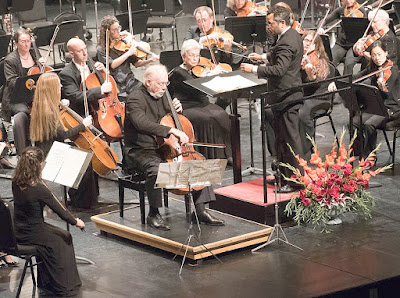Based on The Scarlet Letter, the landmark 1850 novel by Nathaniel Hawthorne, Scarlet reexamines morality through the public and private struggles of flawed characters in a socially rigid community. The contrast between individuality and conformity is highlighted throughout, as each lead character resolves this tension through confession, repentance or spiritual transcendence.
Paired perfectly with a score by the New England modernist composer Charles Ives, the voice of American innovation is strong in the dance, which extends the neoclassical approach with elements of film and spoken word.
Lead roles danced by Brette Benedict, Antonio Rosario and Sam Opsal were eloquent and athletic, excelling in form and detail for nearly two hours of performance. The solos and pas de deux were nicely scaled for the Hemmens stage, and the lighting and curtain work were precise throughout. The film projection would have fared better with a new lamp.
Though the swirling organza looks beautiful and the movement is on par with olympic athletes, concert dance is a language that can be learned and understood. The source material for Scarlet — familiar to so many Americans — makes this ballet accessible, and new audiences will clearly recognize that while some of us must wear a badge of shame, everyone's petticoats are scarlet.
The finest in any art form leaves you wanting more, and we would gladly experience this production again, which tells a story "between a dream and reality" in a medium that's between a dance, a poem, a play and a symphony. Learn more about Ballet 5:8 and Scarlet's national tour at www.ballet58.org.



